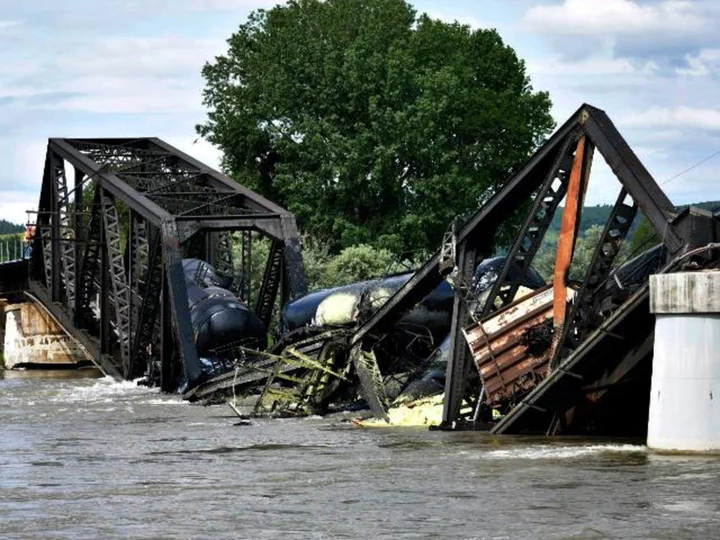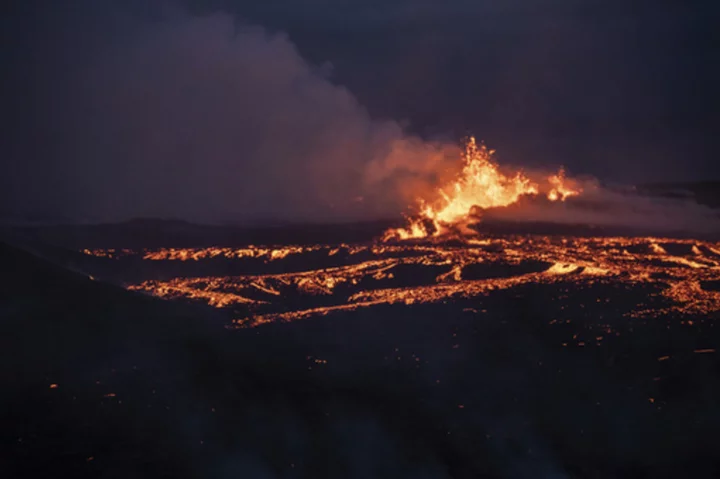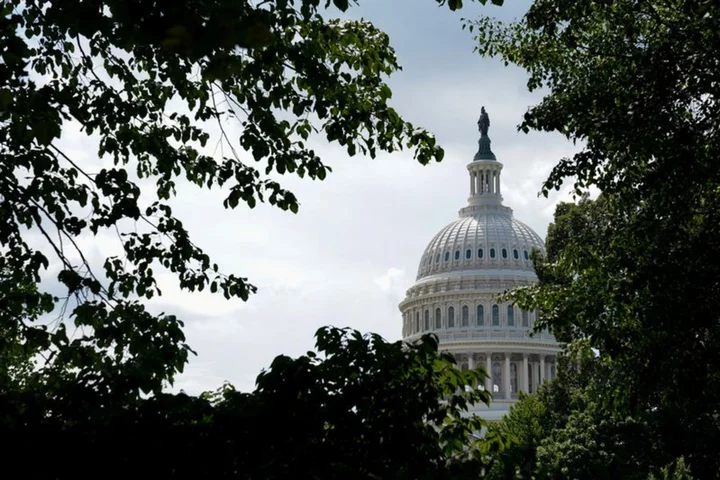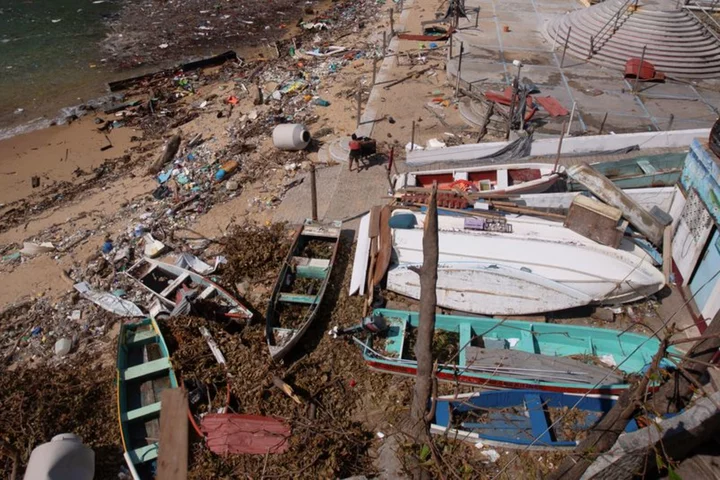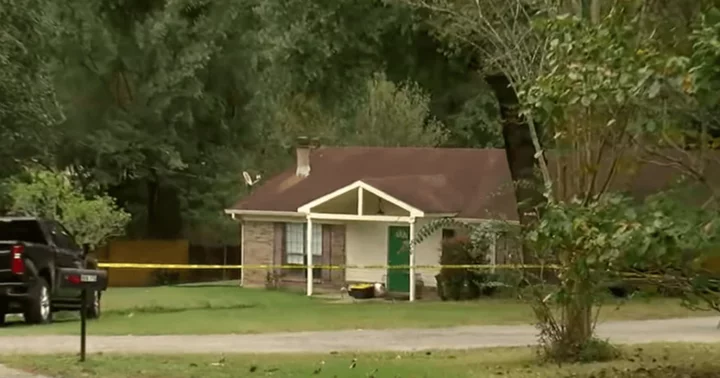A week after a train derailment and bridge collapse sent rail cars into the Yellowstone River, authorities say only two rail cars carrying molten sulfur and scrap metal remain in the water as cleanup continues near Columbus, Montana.
Seventeen Montana Rail Link train cars derailed last Saturday morning in Stillwater County, causing a bridge across the Yellowstone River to buckle underneath it and send 10 train cars crashing into the water below, county officials have said.
Since then, crews have been working to clean up the area and conduct water sampling at the site. As of Saturday, only two of the rail cars were still in the water, according to the Environmental Protection Agency.
A car containing asphalt removed Friday released "asphalt material," the EPA said. "Initial assessments indicate the release was minimal based on the amount of material believed to still be remaining in the impacted car. "
The EPA urged residents in that area to report any "sightings of any asphalt material they observe," and "continue to avoid touching the material with bare skin." Prolonged skin contact to asphalt can cause an allergic reaction, which usually appears as a skin rash, the EPA said.
Officials also reported earlier this week that "asphalt globules" had been detected in the river but said it's "not water soluble and is not anticipated to impact water quality."
The EPA has said it's conducting daily water and air quality testing, and monitoring 10 downstream locations and three upstream sites. "At this time, there are no known risks to public drinking water or private drinking water wells," the agency said Thursday.
There have also been no reports of oiled wildlife at the river, the EPA said Saturday, but boating and fishing access sites are still closed approximately 1 mile upstream and 2.5 miles downstream from the site of the derailment.
The rail cars that fell in the water contained asphalt, molten sulfur and scrap metal, the EPA said. Other derailed cars carrying sodium hydrosulfide did not go into the river and have since been removed from the site.
As cleanup continues, crews are working to remove asphalt and scrap metal from the derailed train cars to haul them away.
"This is a time-consuming process, expected to take multiple days to successfully complete," the EPA said Saturday.

